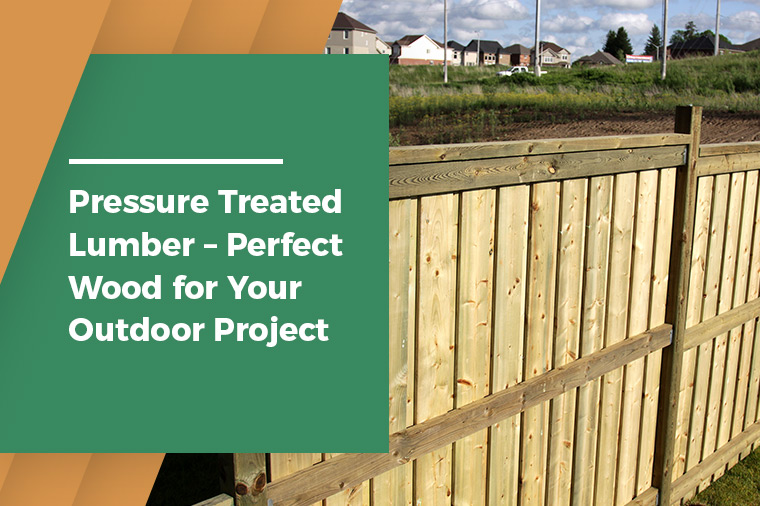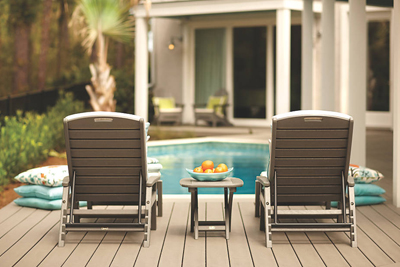Pressure Treated Lumber – Perfect Wood for Your Outdoor Project

To All Our Valued Customers, Over the past few years, the Covid 19 Pandemic has forced us to adapt and change the way we do things on a day-to-day basis. Florida Lumber is no exception. To make sure that we remain strong and competitive in the market for the years to come, Florida Lumber has had to adjust and change our vision for the future. In the last 2 years, we have stopped selling Sheetrock and drywall products, roofing felt and roofing materials, and have even closed on Saturdays.
Over the last few months, we have been transitioning our way out of the door supply business so on August 31, 2022, our door shop will stop assembling doors. We will continue liquidating our doors from inventory until we are out of material.
Some customers have asked if we are closing or even moving locations. To set the story straight, we are not closing or selling the business and we are not moving. These changes are all part of our new vision and path to continue serving South Florida and increasing our footprint in the construction supply industry.
Our focus is going to be on Lumber, Construction Materials, Rebar Fabrication and Rebar Accessories. As we have liquidated some of the items that we don’t sell anymore we have created more space to buy a larger volume of our core items and pass on the savings to our customers.
In the next year you will start seeing changes that will help improve our ability to serve you, our customers. We appreciate your business and your patience as Florida Lumber’s new vision becomes reality.
A Todos Nuestros Valiosos Clientes En los ultimos anos, la pandemia de el Virus (Covid 19) nos ha forzado a adaptarnos y cambiar la forma de hacer cosas en el dia a dia. Florida Lumber no ha sido una excepcion.
Para asegurarnos de mantenernos fuertes y competitivos en el mercado en los anos venideros, Florida Lumber ha tenido que ajustar y cambiar nuestra vision para el futuro. En los dos ultimos anos hemos dejado de vender los productos de yeso (sheetrock), paneles de yeso (drywall), tela asfaltica (roofing felt), materiales de techo y cerramos los Sabados. En los ultimos meses, hemos estado en transicion para salir del negocio de suministro de puertas, en Agosto 31, del 2022 nuestra tienda de puertas dejara de construir y/o cortar puertas. Vamos a continuar liquidando nuestro inventario de puertas haste que terminemos todo el material. Algunos de nuestros clientes han preguntado si estamos cerrando o si nos estamos moviendo a otra localidad. La verdad es que no estamos cerrando, no estamos vendiendo y no estamos cambiando de localidad. Estos cambios son todos parte de nuestra nueva vision y camino a continuar sirviendo al estado sur de la Florida y incrementar nuestras huellas en la industria de suministros de construccion.
paneles de yeso (drywall), tela asfaltica (roofing felt), materiales de techo y cerramos los Sabados.
En los ultimos meses, hemos estado en transicion para salir del negocio de suministro de puertas, en Agosto 31, del 2022 nuestra tienda de puertas dejara de construir y/o cortar puertas.
Vamos a continuar liquidando nuestro inventario de puertas haste que terminemos todo el material. Algunos de nuestros clientes han preguntado si estamos cerrando o si nos estamos moviendo a otra localidad.
La verdad es que no estamos cerrando, no estamos vendiendo y no estamos cambiando de localidad. Estos cambios son todos parte de nuestra nueva vision y camino a continuar sirviendo al estado sur de la Florida y incrementar nuestras huellas en la industria de suministros de construcción.
2431 N.W. 20TH ST.
MIAMI, FL 33142
PHONE: (305) 635-6412
Sales Fax: (305) 633-4054
Accounting Fax: (305) 635-3723
Email: sales@tloridalumber.com

Pressure-treated lumber refers to lumber that is infused with different chemical preservatives for protection against insects and rot. To accomplish this, the wood remains within a quilting depressurized tank, which serves to remove the air that’s present within it. The process involves the replacement of air with different preservatives. This has remained the most suitable method for avoiding insects and rot, but it cannot fully prevent corrosion and weathering.
Different type of chemical treatment
In the past, chromated copper arsenic (CCA) was typically been the major preservative utilized in wood treatment. However, this chemical is highly toxic, and strict practices regulating its use have been put in place. Today, however, lumberers consider CCA as safe when homeowners apply recommended precautions, which include applying oil-penetrating finish over a span of several years. While, residential application is almost non-existent today, many industrial and commercial projects continue to utilize CCA.
Additional treatment
Pressure-treated wood undergoes periodic treatment with a lens that locks in arsenic chemicals that are quite dangerous. New pressure-treated lumber uses sealant coating for protection against corrosion and weathering. Pressure treatment provides effective protection against internal decay and the sealant provides protection against external damage. The function of the sealant is also to prevent drying that might lead to excessive warping. It is also possible to stain or paint the wood in order to facilitate drying for 1-2 months, as this is going to ensure proper adhesion.
Professional services for connectors, fasteners and retention
Connectors and fasteners are an important aspect of pressure-treated wood, especially when it comes to building projects. The fastener is applied to anchors, boards, nails and screws for holding multiple wood pieces together. For manufactured devices, connectors served a similar function. In many projects, the operators will use connectors and fasteners together for completing construction work involving wood.
Retention rate refers to the amount of chemical preservative that will adhere to wood during the treatment process. There is a wide variation in rates available, and it is necessary to tailor everything to specific project requirements. The amount of .25 lbs. of preservative per cubic foot is the ideal amount to use when there is contact with the ground, while .40 lbs. and .60 lbs. are ideal for use with wooden foundations.
Irrespective of scenarios, professionals recommend standard rates of retention. The climate conditions in the local environment will also affect the rates. The connector and fastener types used will also remain affected by different climate factors, and this mostly relates to present retention rate and specific chemical type in the wood. Even when you are confident enough to handle your own project installation, it is necessary to consult with professionals, as this will allow you to avoid common mistakes made during construction and wood selection.
Application of pressure-treated wood
People might have some confusion regarding various uses of pressure-treated wood varieties, but the answer to this is quite simple. When it comes to outdoor projects, you should use the pressure-treated variety because it is more durable and resistant to external factors. However, when it comes to your indoor projects, you can use the wood as is. Sawdust used in the pressure-treatment method might irritate the nose, skin and eyes of the individuals.
Low level of leaching, such as the leaking of chemical preservatives from wooden material, can also lead to problems. Subsequently, it is better to use them only in the outdoor areas. When you choose wood species effectively, pressure-treated lumber offers benefits such as protection from insects and rot. When utilized outdoors, use of pressure-treated woods can add approximately two decades to your project’s life span.

